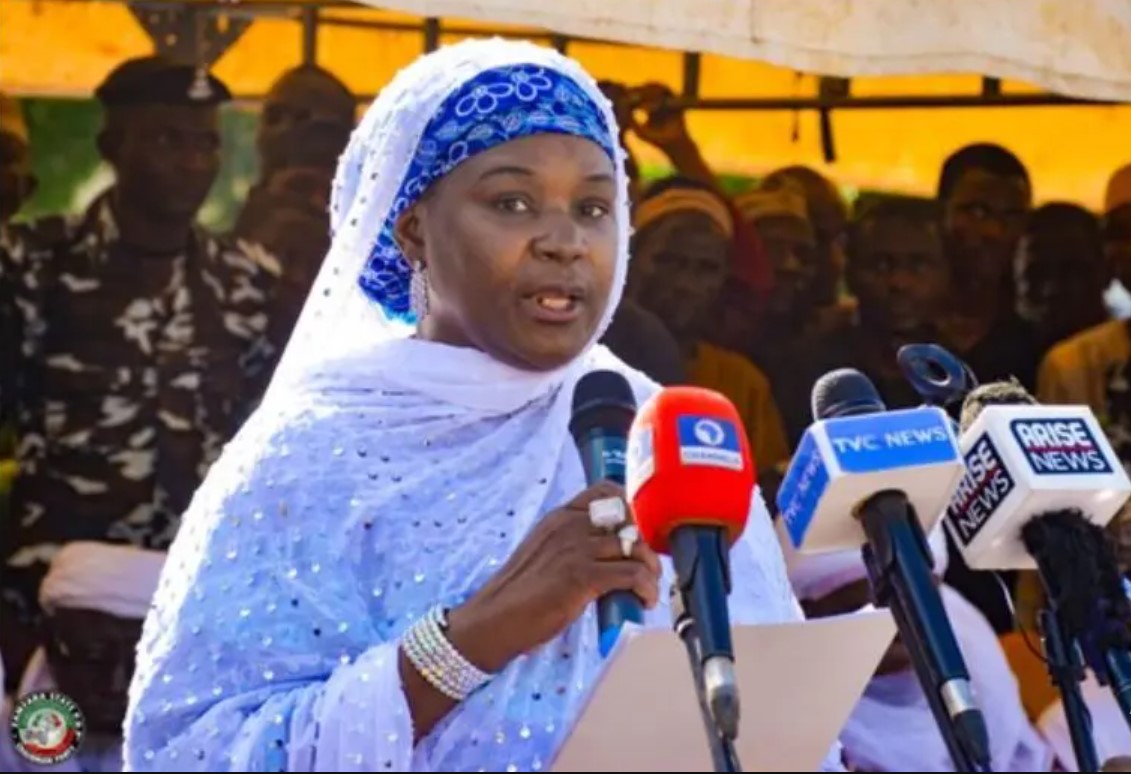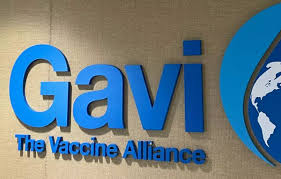Nigeria must fix primary healthcare for child survival — Ms Cristian Munduate
- Health Sector
- No Comment
- 358

• Links country’s poor health indices to data challenges
• Says breastfeeding powerful start for child health
The United Nations Children’s Fund, (UNICEF) Representative in Nigeria, Ms. Cristian Munduate has emphasised the critical role of a robust primary healthcare system in tackling childhood illnesses and ensuring healthy development in Nigeria.
Mundate who stressed the need to address gaps in the current healthcare system said: “Guaranteeing a healthy future for Nigerian children and improving under-five mortality rates requires fixing the primary healthcare system.”
The UNICEF Representative spoke to Good Health Weekly on child survival shortly after she handed over a solar-powered oxygen plant with a Level 2 Neonatal Unit to the Oyo State Government, last week.
She highlights the importance of ensuring accessible and well-equipped primary healthcare facilities throughout the country.
Excerpts:
Biggest challenges in preventing childhood diseases
“Immunisation is essential, but to truly improve child health in Nigeria, we need to strengthen primary healthcare. This requires amplifying the issue not just with the government, but also with communities, religious leaders, and traditional leaders. Their involvement is crucial to ensure children receive preventive healthcare, including vital immunization and proper nutrition.
“Now the country is having a complicated situation on food security, but mothers should take their children to the health facilities. And when I say health facilities, not hospitals. They have to go at ward level to the primary health clinic to screen their child and to make sure the child is okay. If it is not okay, the child will receive attention, and therapeutic food so that they can survive.”
She said another factor that is needed is for people to understand that open defecation contributes highly to the death of people not only of children but of adults.
Munduate explained that open defecation leads directly to cholera and can be fatal. “Every community should prioritize establishing latrines to ensure basic sanitation. While upgraded facilities are ideal, even basic latrines significantly improve public health in many Nigerian communities.”
Closing the Healthcare Gap
She noted that Nigeria is facing a critical challenge: a lack of accessible healthcare facilities, particularly at the ward level, adding that with a booming population of over 200 million and 8 million births annually, the shortage directly impacts child survival rates.
She added that without readily available primary healthcare centres, countless children miss out on essential services like immunizations and it leaves them vulnerable to preventable diseases that can be deadly.
“Alarmingly, Nigeria has one of the world’s lowest immunization rates, putting countless children at risk. While government investment in healthcare infrastructure is crucial, it’s not the sole answer. Vaccine hesitancy, fueled by misinformation and mistrust, also plays a significant role. This is where we, as social communicators, can make a real difference.”
Immunisation gaps
She recalled that the recent diphtheria outbreak, with cases primarily in unvaccinated children aged 8-12, underscores the urgency in addressing vaccine hesitancy, adding that it is not just about government action but parents also have a crucial responsibility to ensure their children receive proper vaccinations.
Munduate, while acknowledging as vital the efforts of several states and the Minister of Health’s sector-wide approach, said the success hinges on all stakeholders fulfilling their roles.
She said the media must advocate, parents must vaccinate, and the government must invest, insisting that “only through this collective responsibility can we create a future where preventable diseases no longer threaten children’s lives”.
Breastfeeding: A Powerful Start for Child Health
Munduate who notes that the best way to nourish a child in the first two years of life was through breastfeeding, added that, many women don’t breastfeed for different reasons that are not scientifically proven.
“If you do exclusive breastfeeding for the first six months and then complimentary breastfeeding for the next one year and a half, you are guaranteeing your child is immunised because this is what it’s all about. Maternal milk helps the immunisation and nutrition of the child.
“There is no other food in the first six months that can provide what the maternal milk provides.”
The UNICEF boss called on mothers to commit to breastfeeding.
Describing breastfeeding as a powerful start for child health, she said breastfeeding should be a vital commitment for mothers as it provides essential micronutrients that contribute to a child’s healthy growth and development.
“My experience with breastfeeding, though challenging at times, ultimately led to my children’s excellent health. I challenge you to make a kind of investigation.
When you see adults, healthy adults, not obese, tall men and women. You can make a poll and you can ask them if they were breastfed. Well, not five years, but two. It’s important. I think this is part of the sort of investigations that needs to be done.” She charged the media to inform people because media is about information and communication.
HPV vaccination and rejection
Discussing HPV vaccination, Munduate emphasised that family upbringing shapes a child’s values. She stressed the vaccine has nothing to do with misconceptions promoting early sexual activity.
“The reality is, by adulthood, millions are married. How many partners do their husbands have? That’s the main risk factor for HPV transmission and cervical cancer. The vaccine helps prevent this cancer.
“Just like breastfeeding helps prevent breast cancer, research the rate of breast cancer in women who breastfed compared to those who didn’t.”
Data challenges hinders progress in child health
She said a country with over 200 million people and 8 million babies born every year, there is no excuse not to plan well due to a lack of data.
Munduate highlights the critical issue of outdated population data hindering proper healthcare planning in Nigeria, adding that accurate information, collected through regular censuses, is essential for allocating resources effectively across local government areas and wards.
Noting that while the under-five mortality rate shows gradual improvement, she expressed concern about stagnant newborn mortality rates over the past decade, adding that in a country with 8 million birth rate annually, this lack of progress is unacceptable.
“How many years ago do you have the last census? It is difficult to do a proper planning if it is not based on the population and this helps to calculate budgets. It is important and that is why we struggle with the data.
The number of children that die before five years is decreasing gradually but the number of newborns, is not moving. It’s the same for 10 years back.”
Munduate emphasised the need to translate plans into concrete action, adding that stakeholders at all levels – government, media, and civil society – must work together to address child health challenges.
She urged the media to play a crucial role in raising public awareness about child health issues that would help empower communities to understand the importance of healthcare interventions like immunisation.
She underscored the low childhood immunsation rates in Nigeria, particularly for preventable diseases like diphtheria, tetanus, and pertussis.
This highlights the need for a targeted push to improve immunisation coverage.
Why malaria others remain a problem.
She said malaria is a major concern, and poor sanitation in communities exacerbates the problem. “Dirty ponds become vitamins (breeding grounds) for mosquitoes, the very insects that transmit malaria. This lack of sanitation creates a vicious cycle”.
Munduate further highlighted a promising development by the Benue state government’s commitment to malaria research.
She disclosed that the state government has allocated funds to conduct intensive research, including a door-to-door search for unvaccinated children.
She said while a malaria vaccine isn’t yet available in Nigeria, there was a need to ensure existing vaccinations are administered.
She emphasized the need to invest in the development of all Nigerians, especially children and young adults as the age group presents both great opportunities and significant risks. “We need swift action to address these challenges.”
By Chioma Obinna
https://www.vanguardngr.com/2024/06/nigeria-must-fix-primary-healthcare-for-child-survival-ms-cristian-munduate/





